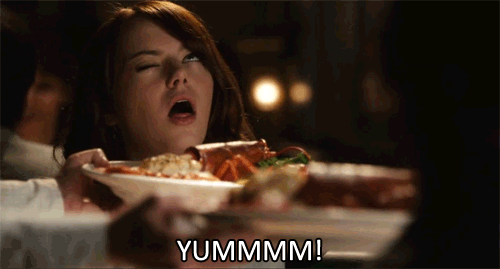The end is near, dear readers. We are in the final sprint of this fall semester! Within the past week alone, I am not quite sure how I was humanly capable of completing all that I completed (caffeine and more than a few late nights were necessary). While I welcome Thanksgiving break with more than open arms, I know that there is an amount of work that I do need to accomplish during that time. Carving out time (and turkey and prime rib) to rest, pamper myself, and spend time with family will be a fun and easy thing to plan. But how will I keep momentum during break?
1. Make a List
Simple enough, right? This is huge for how I get things done, but I know that I can be guilty for writing the most vague, unhelpful items. “See syllabus” and “start paper” aren’t exactly the most engaging phrases and they are too vague. See syllabus for what? For a description on the final paper? To check what material will potentially be on the final exam? Instead of general, overboard to-do list items, I try to make them a little more specific so I know exactly what I am trying to accomplish. For instance, a portion of Thanksgiving break’s to-do list looks like this:
- create outline of thesis material to go on Psychology Poster (Due Dec. 1 at noon)
- Compile presentation notes from program notes for Mamlok, Haydn Diveritimento, and Bach Prelude from Suite No. 3 (presentation day Dec. 4)
- practice first movement of Haydn Divertimento with metronome
Even if you aren’t familiar with the specifics of my list, each bullet has a clear objective. There’s an important difference between “start Psychology Senior Thesis Poster” and “create outline of thesis material to go on Psychology Poster”. Above, there is a preliminary step and what to use for it, an outline from my thesis material. In addition, the above clearly states a deadline. For me, it helps to put in specific details that help me actually break down the larger assignment and want to complete it (cross items off a list is so gratifying). Sometimes I sprinkle smaller tasks throughout my list so when I cross them off, I feel like I am getting things done (I am all about little victories). A smaller list in addition to above includes:
- schedule a dentist appointment
- make lunch plans with [insert high school friend here] for Friday
These items are much easier to accomplish and can take as much as 5 minutes. The fun things on my list are what I want to do first. After I complete them, I do feel like I am getting things done, which then propels me into wanting to get the rest crossed off.
2. Feel Free to Search Without Limits
During Thanksgiving break, I will more formally begin my job search. This process will also include a list. But I have also realized that this process, for me, will include a the ability to search without limits. Through some self-reflection, I have realized that planning for what comes next is an immense opportunity. Instead of searching for a job like a chore, I have been having some fun just imagining what could be. Right now, I believe I am very flexible and very willing to apply for so many varied positions. That is leading me to have a positive attitude towards the process. For instance, I am widening my options beyond arts and orchestral management. I find myself asking questions, what would the mission statement of a company that I would want to work for be? How would I want to contribute to the office culture? These questions are also important to address along with my relevant career interests. By feeling free to search without limits, my list (refer back to item number 1) of positions I plan on applying for is at a comfortable number.
3. Know when to say yes and no
This semester, I have been learning this lesson the hard way. For a lot of us, I think it is easy to overexert ourselves and simultaneously believe that we are not doing all that we can all the time to put ourselves in a position for success. Discovering how I draw boundaries for myself in academics, extracurricular activities, and interpersonal relationships is so incredibly important. Along these lines, self-care is immensely important. I believe that I cannot be fully present or produce my best work if it is going to be at the expense of seriously compromising my emotional or mental health. I am learning how to take care of myself and how I can actively incorporate that into a daily lifestyle (shout out to my friends who have inspired me to keep track of my steps everyday, the included iPhone “Health” app has a pedometer).
What are your plans for the break? I hope they include some rest and relaxation and some productive procrastination that will keep your momentum going at your own pace!





